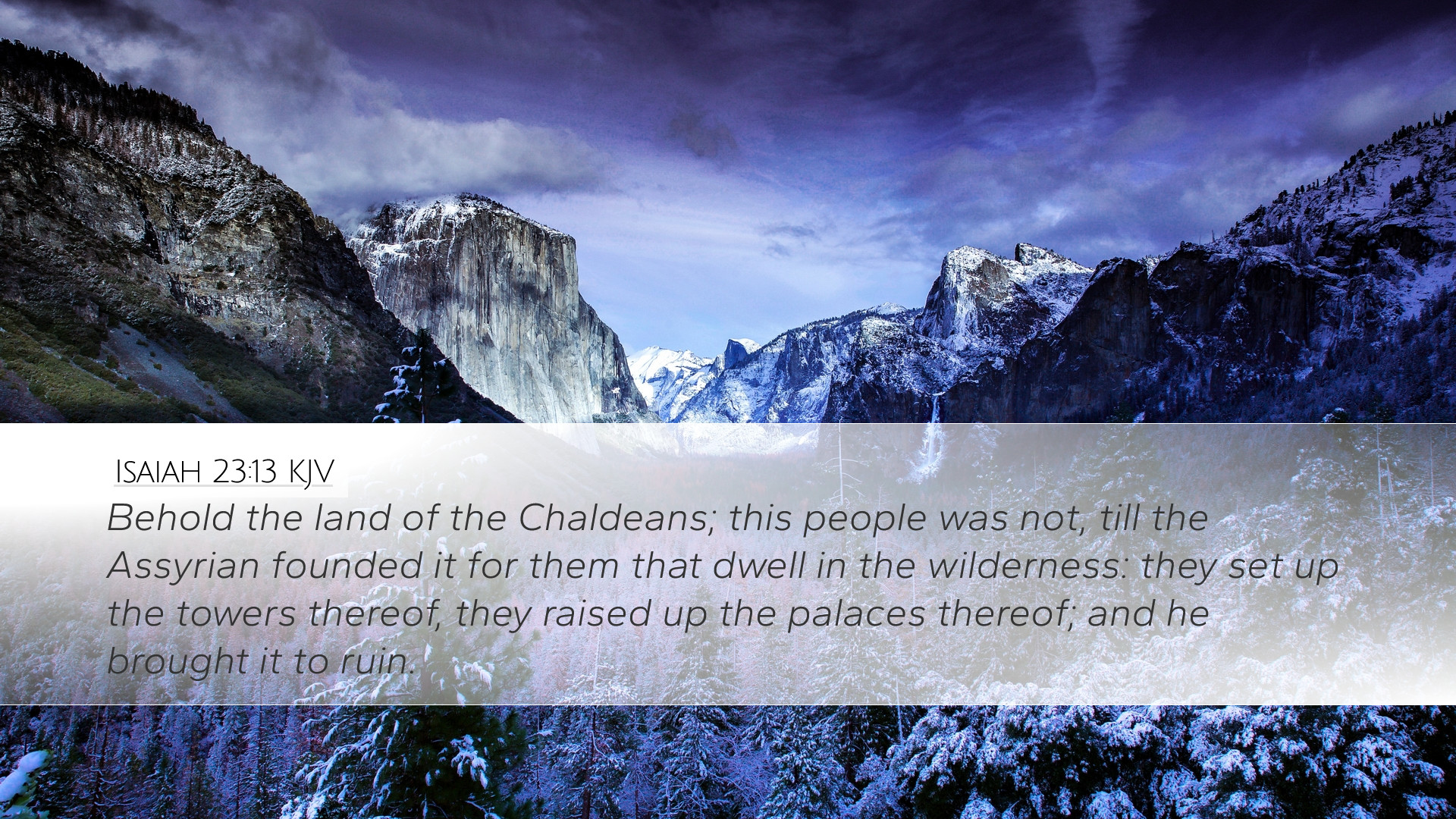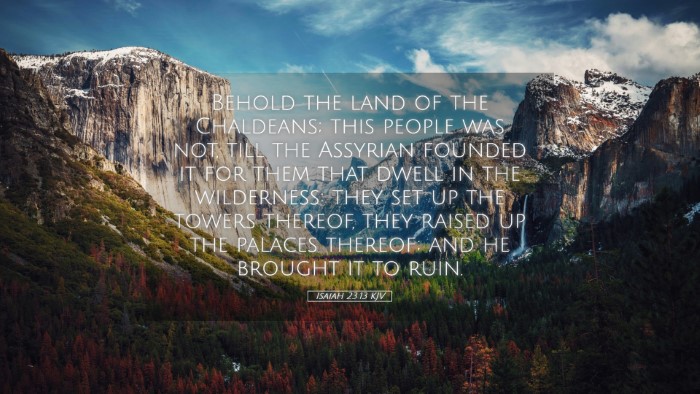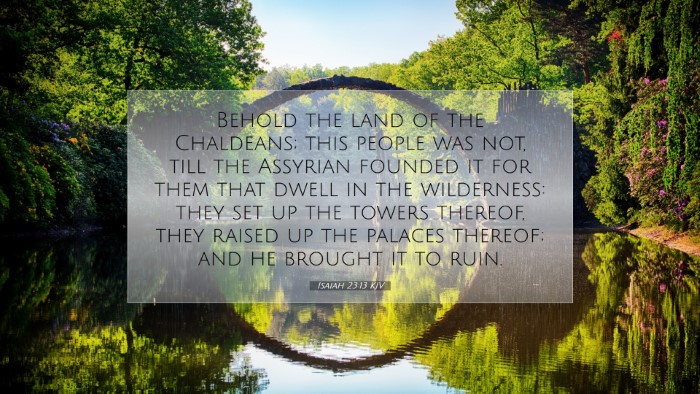Commentary on Isaiah 23:13
Verse Reference: Isaiah 23:13 (NIV) - "Look at the land of the Babylonians, this people that is now of no account! The Assyrians have made it a place for desert creatures; they raised up their sieges against its towers and reduced its fortresses to rubble."
Introduction
Isaiah 23:13 reminds us of the downfall of Tyre, through a prophetic lens that reflects the historical oppression led by Babylon and Assyria. This verse serves as a stark reminder of the volatility of nations and the transient nature of power. The insights from public domain commentaries reveal layers of theological significance which are crucial for an in-depth understanding.
Contextual Overview
This passage occurs within a prophecy against Tyre, addressing its eventual destruction and the reasons behind it. Tyre was a flourishing maritime city known for its commerce and wealth. However, God's judgment awaited them for their pride, idolatry, and defiance against His will. Here, Isaiah contrasts the majesty of Tyre with the desolation that would follow.
Historical Significance
Commentators like Matthew Henry highlight how the prophecy regarding Tyre also contains implications about Babylon, symbolizing the power of nations that rise but ultimately fall under divine judgment. The Assyrians were known for their brutal conquests, and their destruction of Tyre's fortifications illustrates God's sovereignty over geopolitical powers.
Insights from Commentaries
Matthew Henry’s Commentary
Henry asserts that God often employs other nations to execute His judgments upon cities and nations. He emphasizes the futility of human pride and the certainty of divine retribution. Particularly, he reflects on how Tyre was once celebrated as a potent city but would be made desolate as a result of their non-compliance with God's decrees.
Albert Barnes’ Notes
Barnes elaborates on the imagery used in this verse, noting the transformation of Tyre from a bustling center of trade to a desolate wilderness. He also points out that the prophetic declaration serves both as a warning and a reminder of God’s overarching authority over nations. Barnes suggests that Tyre’s strategic significance made its downfall more poignant and significant in the grand narrative of God's plan.
Adam Clarke’s Commentary
Clarke draws attention to the broader implications of Tyre's lamentable state. He contextualizes it within the geopolitical landscape of the time. According to Clarke, the mention of Assyria reveals how one empire's strategies can drastically alter the fate of another. He emphasizes that God's sovereignty allows for the use of one nation to enact His will upon another.
Theological Reflections
The theological implications of Isaiah 23:13 extend beyond mere historical narrative. They invite reflection on God's justice, sovereignty, and the inevitability of judgement. The destruction foretold can be seen as a caution against spiritual complacency and social injustice. The pride of Tyre serves as a universal lesson for individuals and nations alike.
- Divine Sovereignty: The fall of great cities and powerful nations illustrates the Lord's control over human affairs.
- The Ephemeral Nature of Human Achievement: Tyre’s rapid transition from wealth to desolation serves as a reminder of the temporary nature of human success.
- Call to Repentance: For pastors and theologians, this verse underscores the importance of repentance and humility before God.
Conclusion
Isaiah 23:13 encapsulates profound truths about the nature of power, pride, and divine judgment. For pastors, students, and scholars, it serves as both a cautionary tale and an encouragement to remain faithful to God's calling. The commentaries of Henry, Barnes, and Clarke collectively enrich our understanding of this text, inviting us to explore the dimensions of God's sovereignty in the world.


